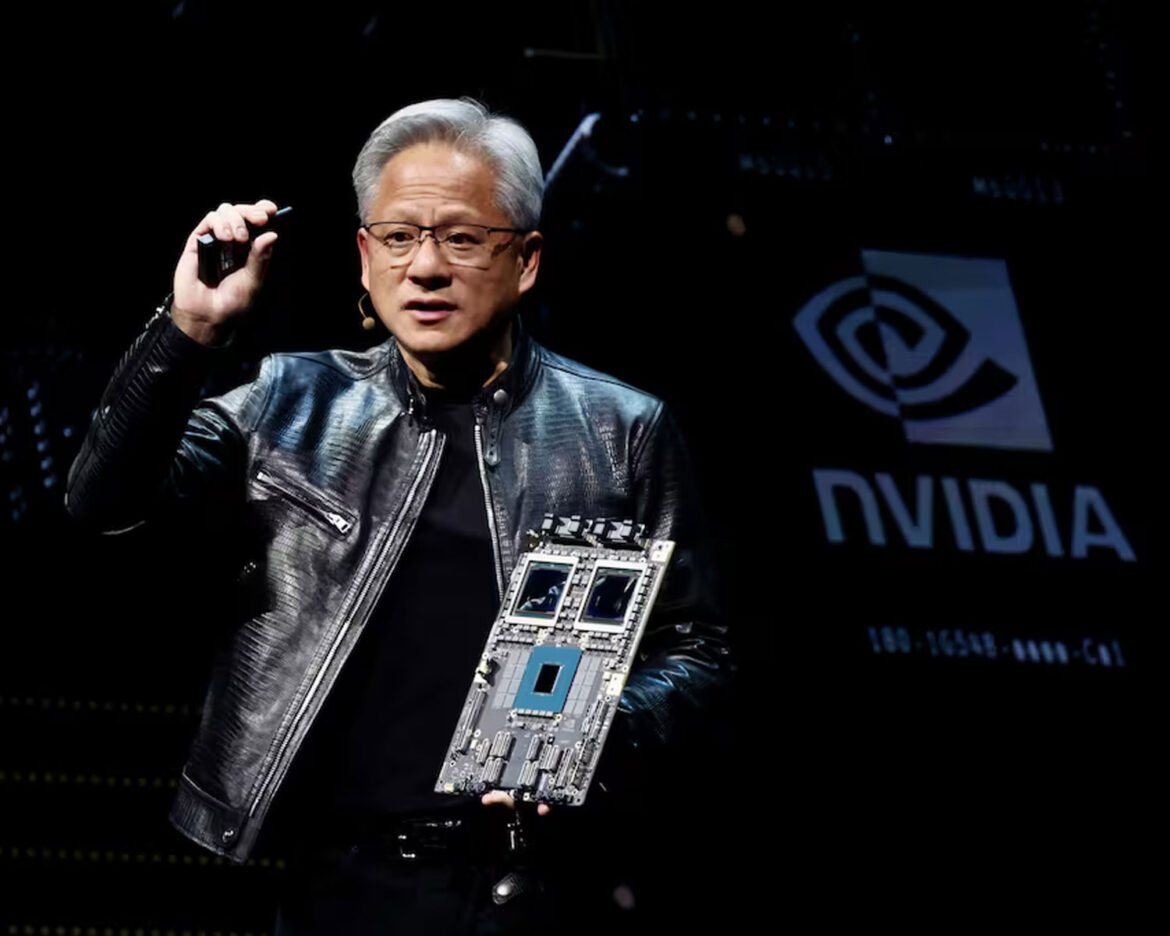Copenhagen — The European Union is trailing significantly behind the United States and China in artificial intelligence (AI) investments, according to Jensen Huang, CEO of Nvidia, a leading AI chipmaker. Speaking at the launch of a new supercomputer in Denmark, Huang emphasized the need for the EU to accelerate its progress in AI development.
Despite the presence of notable AI companies like France’s Mistral and Germany’s Aleph Alpha, the EU is perceived to have a limited number of players in the AI field. However, it did achieve a milestone in August by implementing the world’s first comprehensive AI regulations. Huang noted, “There’s an awakening in every country realizing that the data is a national resource,” indicating a growing recognition of the importance of data in driving AI advancements.
Nvidia recently unveiled the Gefion supercomputer in Denmark, equipped with 1,528 graphic processing units (GPUs). Built in collaboration with the Novo Nordisk Foundation and Denmark’s Export and Investment Fund, this supercomputer is set to facilitate drug discovery, disease diagnosis, and address complex challenges in life sciences. Huang predicted, “The era of computer-aided drug discovery must be within this decade. This will be the decade of digital biology.” Nvidia’s GPUs are crucial in AI applications, having powered significant advancements like OpenAI’s ChatGPT.
In a related development, the EU is also intensifying its efforts to regulate Big Tech. Teresa Ribera, the nominee for the European Commission’s next antitrust chief, pledged to enhance the bloc’s enforcement of the Digital Markets Act (DMA), aimed at curbing unfair practices by major tech companies. The DMA designates firms like Alphabet, Apple, Amazon, and Meta as “gatekeepers,” requiring them to ensure fair competition in the market.
Ribera expressed her commitment to swift antitrust investigations to mitigate the ongoing benefits that companies may derive from anti-competitive practices. This includes protecting smaller businesses from being undermined by foreign firms seeking to eliminate competition through acquisitions.
The EU faces challenges in fostering homegrown companies in the clean tech sector due to a fragmented capital market. Ribera highlighted the need for a new industrial strategy, stressing that regulation alone cannot resolve the EU’s competitiveness issues, particularly in the context of subsidized Chinese firms in various sectors, including electric vehicles.
As the EU continues to navigate these challenges, Huang’s remarks underline the urgency for enhanced investment and strategic initiatives to secure a competitive edge in the rapidly evolving AI landscape.



